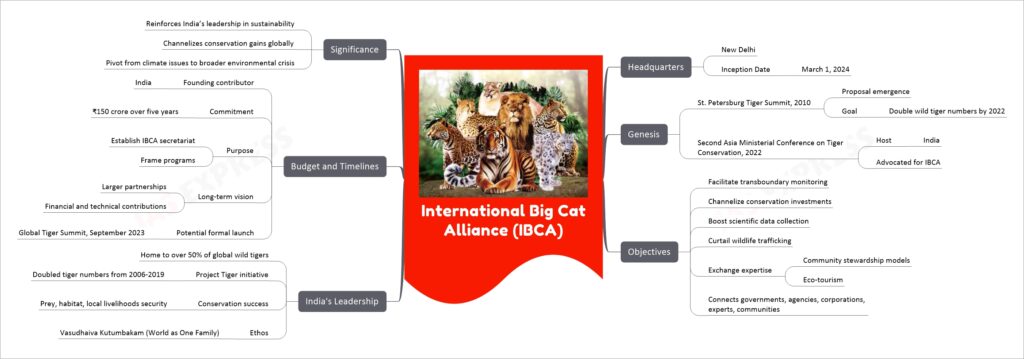International Big Cat Alliance (IBCA)

The International Big Cat Alliance (IBCA), initiated by India’s Environment Ministry and approved on March 1, 2024, represents a strategic intergovernmental effort to foster global tiger conservation. Headquartered in New Delhi, the IBCA is inspired by the International Solar Alliance and aims to emulate its success in the realm of wildlife conservation. Emerging from the St. Petersburg Tiger Summit in 2010, the alliance’s core objective is to enhance global collaboration for doubling wild tiger populations by facilitating transboundary monitoring, channeling investments into tiger habitats, boosting scientific data collection, curtailing wildlife trafficking, and exchanging expertise on community stewardship and eco-tourism. India, housing over 50% of the world’s wild tigers, plays a pivotal role through its successful Project Tiger initiative, demonstrating significant conservation achievements. With a commitment of ₹150 crore over five years, the IBCA seeks to establish a secretariat and frame conservation programs, aiming for a larger global partnership to address the broader environmental crisis threatening key ecosystems.

